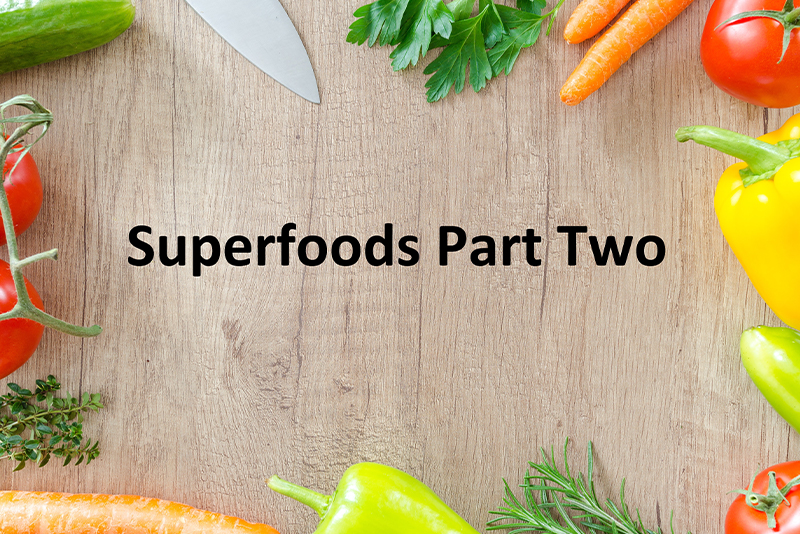
Waikato Nurse Heather Leong’s latest and greatest information on Superfoods…Part II.
Mushrooms
A mushroom a day…..keeps cancer away.
True it does…and so much more
The humble mushrooms has some special plant compounds that enable the body to respond rapidly and significantly when we are expose do microbes such as viruses and bacteria, often allowing us to avoid the illness before it even begins. (1)
This includes all kinds of mushroom – portobello, oyster, white, cremini, maitake and reishi have demonstrated anti-cancer effects such as preventing DNA damage, slowing the growth of cancer tumours or cancer cells, promoting cancer cell death and preventing a tumour from growing a blood supply. This has been shown in breast, prostate and colon cancer. ( 2)-(5)
Pretty powerful researched facts are that eating mushrooms on a regular basis is linked with a significantly reduced risk of breast cancer in both pre and postmenopausal women.
Wow fact:
Incredibly if you eat mushrooms frequently they can decrease the incidence of breast cancer by up to 60-70%! In one study women who ate at least 10gms of fresh mushrooms each day (that’s like just one little mushroom) had a 64% lower chance of breast cancer.(6) If you add green tea to this, its 89% less risk for premenopausal women and 82 % in postmenopausal women (7)
Have I convinced you to develop a taste for mushrooms?
Beans
This kind of food is more common for vegetarian or vegan individuals as a protein source, but those that don’t eat this amazing food are certainly missing out. Some examples of beans include: Pinto beans, black beans, cannellini beans, soy beans, kidney beans.
They are a satisfying food as they provide both carbohydrates, and protein and they have a high nutrient density, meaning they have high levels of vitamins minerals and plant nutrients per calorie. They are digested slowly so they have great levelling effect on blood sugar, and also make you feel satisfied after a meal. The added soluble fibre they contain also supports lowering blood cholesterol levels (8). If you have diabetes or high cholesterol they may be a perfect food for you.
In addition the simple bean can provide your colon with some protection against cancers – see the research below.
Research: Did you know that eating beans, peas or lentils x2 per week reduces colon cancer by 50%?(9) and that the resistant starch in legumes is fermented by intestinal bacteria into fatty acids which help to prevent colon cancer. If you are watching your weight the fibre in the bean helps to reduce the calories absorbed as well, so helps with weight loss.
Other benefits with legume intake are the protection against oral, larynx, and pharynx, stomach and kidney cancers. (10) Other examples of legumes are lentils, chickpeas and peas. Beans come under the legume heading as well.
Some people have to start slowly with small introductions as the body can adapt over time to digest beans more effectively. Don’t give up – if you experience wind, its just a matter of time and slowly adding the beans in small amounts to begin with can adapt your body’s digestive system to the legumes.
Seeds
Last but by no means least are seeds. Examples include: sesame seeds, flax seeds, chia seeds, hemp seeds, sunflower seeds.
These tiny food sources have both protein and fat that is beneficial unlike other processed forms of fats such as oils, butter and dairy.
They have been shown in many studies to prevent and even reverse disease.
Flax or Linseed is a perfect food example of this: they provide omega 3 fatty acids (which help with inflammation and preventing clots), they contain lignans (special plant nutrients that are fibrous and have anti-oxidant characteristics) and contain mucilage, which is good for supporting lubrication in the bowel which can ease bowel motions.
Many of the seeds are rich sources of zinc, vitamin E (in all its forms-so much safer than a multivitamin); and calcium (sesame seeds have the highest concentration of calcium of any other food).
There are many studies to support the use of seeds in the diet, one in particular shows that when flax seeds were given to women with breast cancer, the women showed a slowing of tumour growth and enhanced survival compared to women not given flax seeds (11)
To learn more please go to the link below.
Dr Joel Furhman is a Board certified family physician who specializes in preventing and reversing disease through nutritional and natural methods.
Although this information is helpful to remind us about the importance of eating our 5-14 servings of fruit and vegetables daily, I am sure these superfoods are just scratching the surface of the powerful effects that we get from eating a variety plant based sources. Please do not leave out this essential food group of fruits, legumes and vegetables. You never know they could be saving your life!
References:
1. Fuhrman J.Super Foods for Super Immunity In: Furhman J,Super Immunity New York, HarperCollins Publishers; 2011p.57-84
2. https://www.drfuhrman.com/library/eat-to-live-blog/62/the-healthiest-anti-cancer-foods-g-bombs
3. Martin KR, Brophy Sk. Commonly consumed and specialty dietary mushrooms reduce cellular proliferation in MCF-7 human breast cancer cells. Exp Biol Med 2010; 235: 1306-14
4. Ng ML, Yap At. Inhibition of human colon carcinoma development by lentinan from shiitake mushrooms (Lentinus edodes) J Altern Complement Med 2002;8: 581-89.
5. Admas LS, Phung S, Wu X,et al. White button mushroom (Agaericus bisporus) exhibits antiproliferative and proapoptotic properties and inhibits prostate tumor growth in athymic mice. Nutr Cancer 2008;60: 744-56/
6. .Hong SA, Kim K, Nam SJ, et al. A case-control study on the dietary intake of mushrooms and breast cancer risk among Korean women. Int J Cancer 2008; 122: 919-23
7. Zhang M, Huang J, Xie X, et al. Dietary intakes of mushrooms and green tea combinedto reduce the risk of breast cancer in Chinese women. Int. J Cancer 2009;124: 1404-08
8. Bazzano LA, Thompson AM, Tees MT, et al. Non-soy legume consumption lowers cholesterol levels: a meta-analysis of randomized controlled trials. Nutrition, metabolism, and cardiovascular diseases : NMCD 2011;21:94-103.
9.O’Keefe SJ, Ou J, Aufreiter S, et al. Products of the colonic microbiota mediate the effects of diet on colon cancer risk. J Nutr2009;139:2044-2048
10.Singh PN, Fraser GE. Dietary risk factors for colon cancer in a low-risk population. Am J Epidemiol 1998;148:761-774.
10)Aune D, De Stefani E, Ronco A, et al. Legume intake and the risk of cancer: a multisite case-control study in Uruguay. Cancer Causes Control 2009;20:1605-1615.
11.Thompson LU, Chen JM, Li T, et al. Dietary flaxseed alters tumor biological markers in postmenopausal breast cancer. Clin Cancer Res 2005;11(10): 3828-35
Recent Posts:
Cyclone Gabrielle – Need to talk?
The weather events have been distressing for many of us. There's good, free, 24x7 telehealth support available from 1737. It's free, just call or text [...]
Happy Lunar New Year from Access Community Health
Here at Access, we celebrate the cultures of the tāngata | people who surround us. Culture enrichens our experience as humans, gives us confidence and [...]
Happy New Year from Access Community Health
With the new year beginning, it is important to take a moment to reflect on how much was accomplished in 2022. This time last year, [...]








